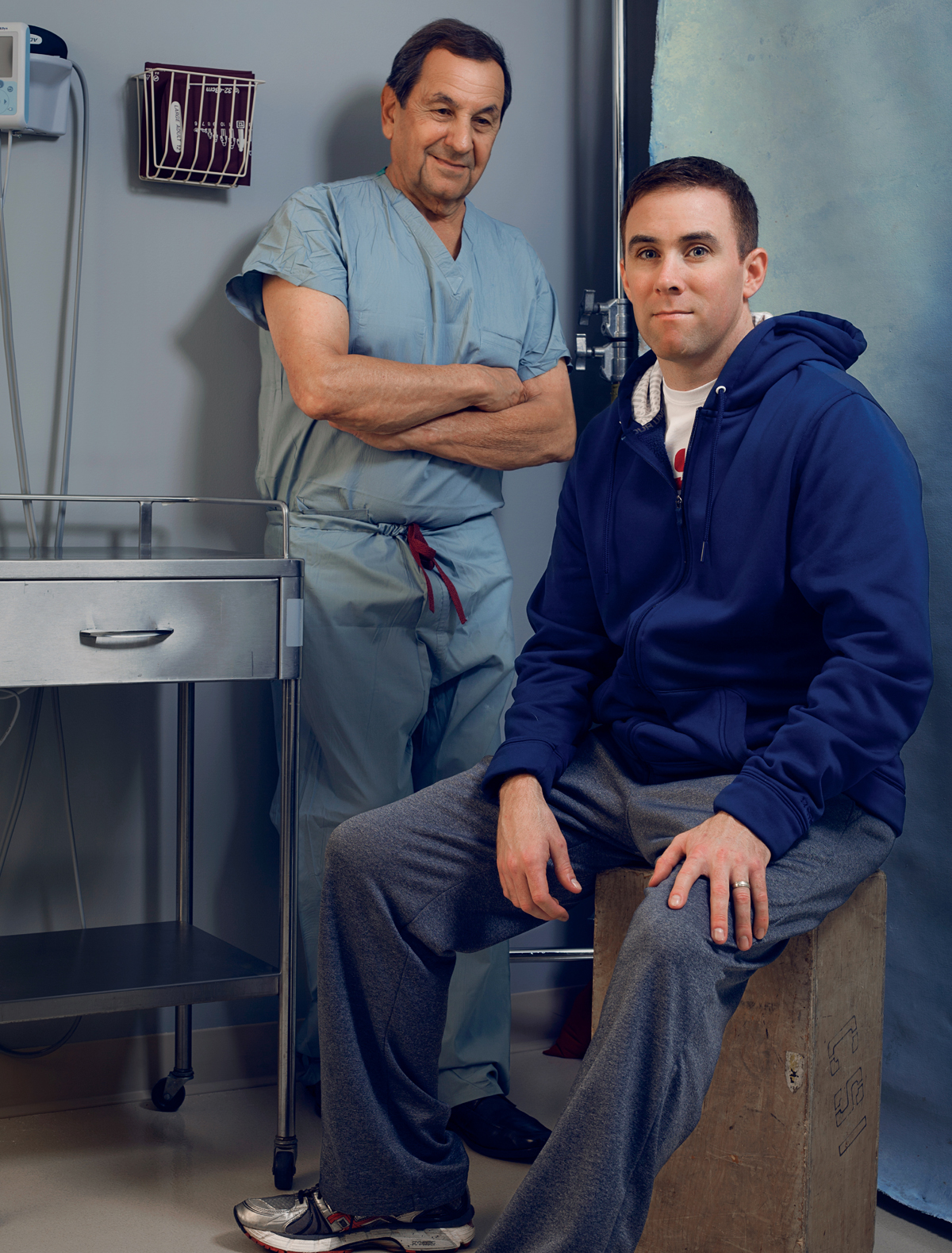Six Heroic Saves

Photograph by Henry Busby
The Doctor:
Frank Vittimberga
Chief of vascular surgery, Mount Auburn Hospital
The Patient:
Richard “Dic” Donohue
MBTA officer, Woburn
Frank Vittimberga was sleeping when his phone rang just after midnight on April 19. His wife, who’d stayed up watching the news, already knew about the shootout in Watertown. “I said, ‘I have to run into the hospital, someone’s been shot,’ and she said, ‘I don’t know if you should go, they’re throwing bombs,’” he recalls. “I said, ‘I’m used to bombs.’”
Vittimberga, the chief of vascular surgery at Mount Auburn, learned his trade treating soldiers during the Vietnam War. When he reached the hospital, he learned that Donohue had been shot in the groin and was losing blood fast. “There was blood everywhere,” he says. “This bullet had gone into his groin very high up, making a small hole on the outside and a large hole on the inside.”
The operation took six hours, Vittimberga says, and “his leg was perfect by the time we were through.”
Donohue remembers nothing about that night, but when he woke up several days later, he was overwhelmed, both by the sea of visitors (including an entire SWAT team in full gear, several Red Sox players, and Kevin Spacey) and by the patience of the entire hospital staff. “They put up with the line of police officers all day and night,” he says—not to mention his constant requests for Big Macs (no dice).


